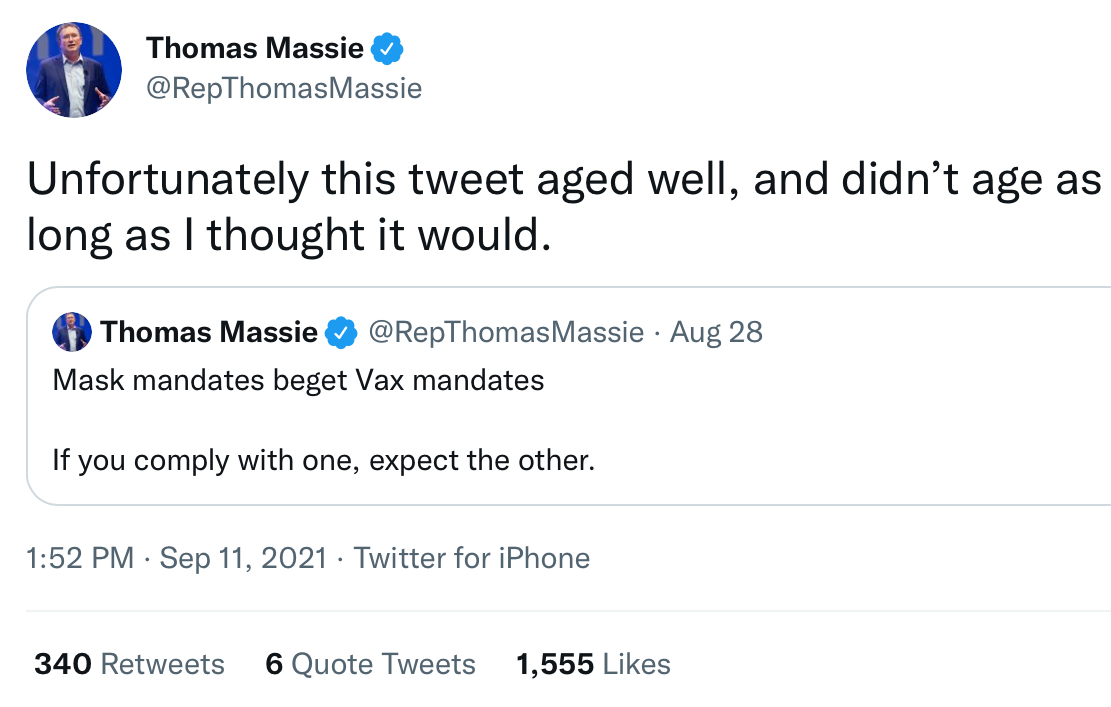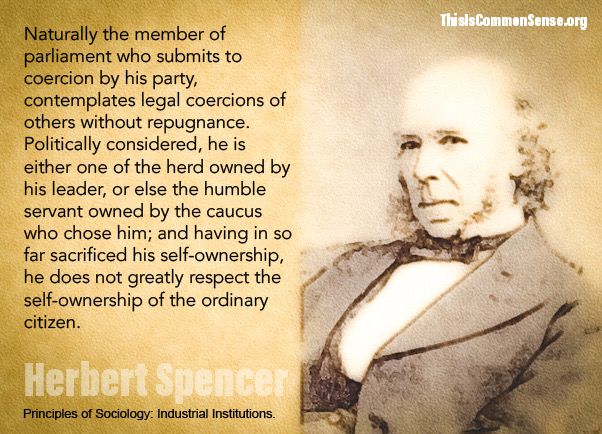Naturally the member of parliament who submits to coercion by his party, contemplates legal coercions of others without repugnance. Politically considered, he is either one of the herd owned by his leader, or else the humble servant owned by the caucus who chose him; and having in so far sacrificed his self-ownership, he does not greatly respect the self-ownership of the ordinary citizen. If some influential body of his constituents urges a new interference, the fact that it will put upon the rest additional restraints, or appropriate further portions of their earnings, serves but little to deter him from giving the vote commanded. Indeed he feels that he has no alternative if he wishes to be returned at the next election. That he is adding another to the multitudinous strands of the network restraining men’s movements, is a matter of indifference. He considers only what he calls “the merits of the case,” and declines to ask what will result from always looking at the immediate and ignoring the remote. Every day he takes some new step towards the socialistic ideal, while refusing to think that he will ever arrive at it; and every day, to preserve his place, he seeks to outbid his political rival in taking such steps. . . . And thus, being the creature of his party and the creature of his constituents, he does not hesitate in making each citizen the creature of the community.
Herbert Spencer, Principles of Sociology (1898), Part VIII: Industrial Institutions; Chapter XXII, “Socialism.”





